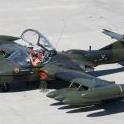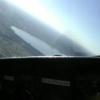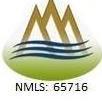Leaderboard
Popular Content
Showing content with the highest reputation on 03/09/2020 in all areas
-
The AF IMT 24 is an application for the position you're applying for though, so it would make sense that 11F would be the correct response. It's not asking for your current AFSC. I always put 11XX (whatever the correct AFSC is). I also asked the POC in Oregon for clarification on this and he said it's also fine to just leave it blank - he just likes the form because it gives him a bunch of useful information about you, not because the version you send is going to be formally submitted. But that of course is probably at the discretion of whoever is handling the paperwork. Definitely don't put the wrong AFSC in there though, like 11M or something.3 points
-
Jaysus! I didn't know that tanker alert was title 10. WTFO??? (great deal for you guys - we need that!)2 points
-
I could write a short book on this, but I’ll try to sum it up. Essentially, this job is for pilots who have a passion for the mission and type of flying we do. There is a long history of poor pay and working conditions in this industry, which have improved dramatically over the past 20 years, but will probably never reach the level of airline jobs. It’s not for everyone, but it is a great job if you love fighting fire! The seasons are getting longer and our pilot group (CFPA) has been working hard to remedy the schedule and pay issues. We are slowly implementing a new schedule that includes more days off....the 10 on/5 off. All of the OV-10 positions have switched this season and about half the S-2 bases will be on it. The S-2s will switch as more Tanker pilots are carded and available to cover the new positions. We have some C-130s slated to come online starting next year (2021), so I’m not sure how that might impact the schedule improvement for S-2s the next few years. The C-130 captains will be previously qual’d S-2 pilots for the most part. Pilot pay is essentially a day rate, plus some other benefits (401k, Pension, and BenCredit). OV-10 Pilots should make around $150k plus and Tanker pilots at $225k plus. Pay varies a lot due to the number of days you work, from about 125 to 200+. I think that hits on most of your questions...2 points
-
I’m not exactly sure what you’re asking in reference to TFRs, but I’ll do my best to explain how we use them. There are two methods used to deconflict traffic around a Wildland Fire incident, the FTA (Fire Traffic Area) and the TFR. Easiest way to understand is that the FTA is for participating aircraft (I.e. assigned), while the TFR is used to keep non-participating aircraft out of the way. Generally, the Initial Attack (IA) phase will not have a TFR, just a FTA. As an incident moves into the Extended Attack (EA) phase a TFR will likely be initiated. This depends greatly on the particular AO of the incident. A fire in SoCal will get a TFR faster than one in the middle of nowhere usually. The TFR shape will morph as Fire activity dictates. The FTA was designed after a mid-air collision involving two S-2s in NorCal in 2001. This establishes a 5 mile ring around the incident and requires clearance in from the aerial supervision platform (if there is one). First call at 12nm from incident coordinates to receive clearance prior to 7nm, otherwise you hold out. First aircraft on scene make blind calls and are responsible for establishing the FTA. The stack starts at 2500’ AGL and moves down depending on aircraft type. It’s very well thought out and works great when everyone does their part. I’m not an expert on lead planes, but the main evolution I’ve seen in my seven seasons is the move towards making them all ASM (Aerial Supervision Module) platforms. Essentially, this is a Lead Plane with a specially trained ATGS (Air Tactical Group Supervisor, better known as Air Attack) sitting right seat to help with coordination. It’s been around a long time, but pretty much all of them are ASMs now. I believe it was the BLM that started that move, but I could be wrong. At CalFire, all our Lead Planes are ASMs and they use the OV-10. Most Fed leads use King Air 90s or 200s and the State of Alaska has a Commander 690 or two. The leads will be on scene for a few hours and really help on large incidents to increase the efficiency of operations by showing the tankers where to drop without a complicated “talk-on” from the Air Attack. Plus the Air Attack can get real busy talking to rotors and the ground, so it essentially splits the work. The lead will sometimes do a “show me” run for the Tanker to watch, then go for a live run with the Tanker in tow. In the S-2 we generally fly 1/4 mile in trail for the drop. The lead will mark the start/stop of the drop with smoke and make any wind corrections as required. As a Tanker pilot I’ll watch the smoke and correct off any extra drift if it’s different than expected. Some tankers require a lead plane in order to drop (VLATs and MAFFS). In the S-2 we usually get a “show me” and then fly our own drop pattern, but it really depends on how things are flowing and trying to be the most efficient we can. It also depends greatly on the individual pilot and what they like. I’ll take a lead if I’m unsure of the target or I’m already in a good position and we can get it done quickly. Most of the LATs (Large Air Tankers) seems to prefer a lead when one is available. It’s standard practice to order a lead for any Federal incident. For state incidents, we almost never order a lead until it goes big. Our standard order is an Ov-10 Air Attack, two S-2s, and a Helitack crew. It’s fast, efficient, and we generally catch them early doing this depending on fire conditions. Hope that answers your questions...2 points
-
I was a prior Army hawk driver , I got picked up for C17s. It is pretty quick but you have to stay on them. Squeaky wheel gets the grease. Sent from my iPhone using Baseops Network mobile app1 point
-
Hired: Sept 19 Swore in : 8 Nov 19 FC1: Jan 20 FC1: stamped approved 24 Feb 20 Packet sent to NGB: 7 Mar 20 Just need some UPT dates[emoji106] Sent from my iPhone using Baseops Network mobile app1 point
-
Keep at it Sir Duck, it’s well worth a little or even quite a bit of pain. Immediate $ and benefits works wonders on any outside pressure cooker worries. Economy, virus, terrorizers(Bush), etc. Morale will improve and the beatings will discontinue.1 point
-
Ok...now it makes a bit more sense. I have no direct experience with terrain following radar, so it’s hard to say. I do see tremendous value in a HUD of some sort that displays airspeed and AOA, which are pretty much all that I’m looking inside at on short final. A quality radar alt would be nice too! There could also be room for a good Synthetic Vision display in my opinion. Spent some time flying a King Air with G1000 and really liked their system. Basically a backup in case you enter thick drift smoke in tight terrain, not as a primary system.1 point
-
Anyone planning on attending the 104FS meet and greet in May? Just booked my airfare, would be great to meet up with some folks throughout the rest of that weekend.1 point
-
1 point
-
I appreciate the Chris Farley gifs. Best of luck man! You seem to be doing all the right things. Sent from my iPhone using Baseops Network mobile app1 point
-
I get verbose, so here's the TL;DR: The training pipeline is a very time consuming and stressful time. You'll have 3-4 months of time you'll have to be apart no matter what due to types of training. If you come with him, your support will certainly help him; but realize that he might not be able to be as engaged in the relationship or reciprocating of the support. You may also have trouble finding work, as UPT bases are in the middle of nowhere small towns. If you stay back home, you'll spend a long time apart from one another; being alone will allow him to focus more on studying, but the stress of the program and strain on your relationship may make it tough for him to actually stay and complete the training. Regardless of what you choose, it's not going to be an easy road, but it's manageable if you have the right expectations (whichever you choose), your relationship is in the right place, and you both understand that the sacrifices made are just short term; things will get better and return to more normalcy as time goes along. Here's the longer, more in-depth version: My .02 from inside UPT now and what I've experienced/heard from other UPT folks. I'm late-30's, married, and we had a 7 month old when this adventure started and enjoyed living in New York City. I brought them with me and it's been much better. Even if I decided to complicate things further by adding another kiddo to the mix, arriving before the end of UPT. First, I went the Reserves route, because your training is all in one continuous line; he'll start OTS and will be on full-time orders from day 1 until popping out the other end (about 2 years) as a trained and unit-qualified pilot. The Guard has more breaks in training, where he might go to OTS, come home for a few months, then to SERE (takes a month), then home, then to UPT (takes a year), then home, then FTU (3-9 months, depending on airframe), then to his home unit. The breaks could be nice if you were staying put, but they could be more of a PITA if you're going with him and pulling up roots at your current home. You're going to 100% have to spend OTS (2 months) IFT (6 weeks, I think. He'll have to go to this if he doesn't have his pilot's license before starting UPT/skips it if he does), and SERE (one month) apart, as you really have no ability to go with him to any of that, so you'll be separated regardless. Then comes to the big chunk of time and stress; UPT. To make a bunch of long stories short, the gist I've seen from multiple folks and is that, unless you're PREPARED to spend that much time apart, it is VERY hard to be successful at UPT without family with you. I know more people that have dropped due to not having families come with them and only know a few folks, every one of them prior military service folks that have dealt with separation before, that are doing okay without their families here. So, if you're not used to spending serious time apart, it's very possible the strain can be too much for the relationship. The downsides of you coming are also notable. First is that UPT is a very demanding schedule and 12 hour days (just the time he'll be gone; not including him studying/mission planning at home) are very common. He'll be target-locked on studying and likely not be able to give as much time to you/your relationship as you're used to, since free moments are few and far between at many points. If you're used to him helping out a lot around the house, cooking dinner together, being able to sit and talk/watch TV with you for hours each night, etc., it'll likely be reduced greatly as he'll have to go study. Or, if he does still try to give that time to your relationship, he's going to be sacrificing the studying time and likely not doing as well in the program. There's only so much time in the day. Personally, I have had many moments where I needed to study and the need to be an engaged husband and father also required my attention. I've certainly erred toward my family over hitting the books as hard, which has certainly affected my performance, but those are the calculated decisions I've chosen to make. Everyone does their own math and handles it all differently. If he is a perfectionist or struggles more with some aspects along the way, just realized he might choose differently. Many people have done it and made it all work, but each person is different and you'll have to take a long look at yourselves and how you think you'll handle it. There's also the inability to get out of "this life" in that the bases are pretty much only for training pilots, so everyone is in the same boat. That can be good for support, but he is going to live and breathe UPT, which means you likely will, too. Your social interactions will involve him with other UPT students talking shop and you hanging with spouses that are also likely very involved with talking about UPT-related things. You're going to know where you're going being Guard/Reserves, so that stress doesn't exist for you guys, really. You're also on the older side (like we are), so your life experiences, wants, and needs may be different from other students (most are single) and spouses that might be fresh out of college, not working/never had a career, not thinking about kids, etc. Last big piece if you come with: UPT bases are in the middle of nowhere, so jobs can be tough to come by if you have something specialized that only exists in bigger cities. It's very likely the pay will be quite a bit lower; although your bills are much lower, so it kinda evens out. That said, chances of you finding a PR/Communications job you love as much as your current job (unless you can work remotely) close to one of the UPT bases are going to be pretty slim. Again, YMMV and I'm certainly not trying to scare you. But, it's important to have rational and managed expectations of what the choice makes. It's an amazing thing and extremely rewarding, but it's not without pitfalls. But, that's life. Haha. Anyway, sorry this got long. Feel free to ask away with any other questions you might have! Good luck to you both!1 point
-
Thanks man! That was perfect timing! Glad you caught me before I took off. Trident def isn’t a M-F 9-5 gig...we help whenever we can. Anyone could call Marty the owner right now on his cell and he’d pickup. Good luck calling U$@@ and trying to even get some random loan officer on the phone on a weekend let alone the CEO. Jon1 point
-
https://en.wikipedia.org/wiki/Ronald_Fogleman https://www.nytimes.com/1997/07/29/us/criticism-over-blast-leads-top-air-force-general-to-retire.html July 30, 1997 As my tenure as your Chief of Staff ends, I want to tell you what an honor and a privilege it has been to represent everyone in the United States Air Force. The timing of my announcement was driven by the desire to defuse the perceived confrontation between myself and the Secretary of Defense over his impending decision on the Khobar Towers terrorist attack. The decision to retire was made after considerable deliberation over the past several weeks. On one level, I’ve always said that my serving as the Chief of Staff was a “tour” not a “sentence” and that I would leave when I made all the contributions that I could. After I accepted this position in 1994, I met with other senior leaders of the Air Force to discuss our goals for my tenure. We wanted to take care of the troops and their families, to stabilize the force, to set a course for modernization, and to develop a new strategic vision. During some difficult and challenging times, we have worked hard to accomplish that and more. Certainly there is more to be done, but the framework of the plan and the leadership [are] in place to move forward with the support and efforts of the magnificent men and women of our Air Force. On another level, military service is the only life I have ever known. My stock in trade after 34 years of service is my military judgment and advice. After serving as Chief of Staff for almost three years, my values and sense of loyalty to our soldiers, sailors, marines, and especially our airmen led me to the conclusion that I may be out of step with the times and some of the thinking of the establishment. This puts me in an awkward position. If I were to continue to serve as Chief of Staff of the Air Force and speak out, I could be seen as a divisive force and not a team player. I do not want the Air Force to suffer for my judgment and convictions. In my view, this would happen if I continue as your Chief. For these reasons I have decided to retire and devote more time to personal interests and my family, … but the Air Force will always be in my thoughts. [My wife] and I have met a lot of wonderful American servicemen and -women—active duty, Guard, Reserve, civilians, and family members—and they will continue to be a part of our lives. We have been proud to represent the men and women of the United States Air Force around the globe and to serve in the finest Air Force in the world. God bless and keep you all as you continue to serve this great nation.1 point
-
Right, the last time we put a non-fighter guy in there, he made blues monday a thing...1 point
-
Congrats to Shaft! He recently got his "card", and after many years of hard work is now a full-blown Initial Attack Tanker Captain. Well done, Sir!1 point










